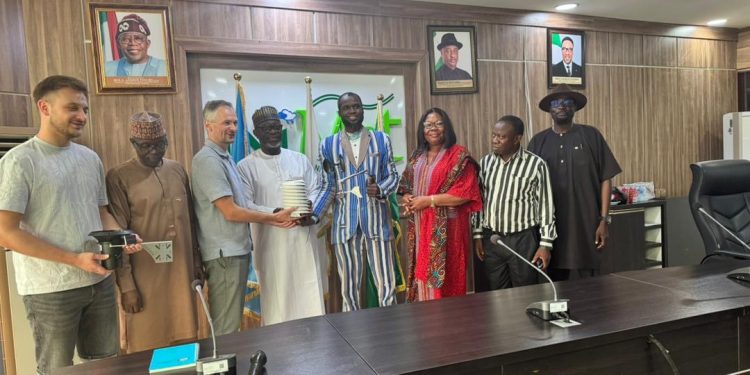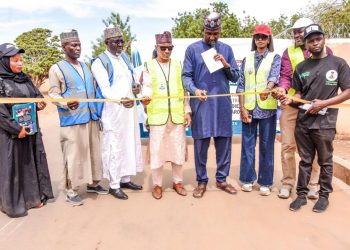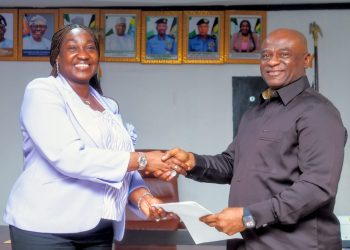By Nkechi Eze
The Nigerian Meteorological Agency (NiMet) is set to revolutionize climate monitoring across Nigerian cities with the introduction of innovative Internet of Things (IoT)-powered, LoRaWAN-enabled weather stations. The initiative, made possible through a strategic collaboration between Barani Design Technologies and the West African Science Service Center on Climate Change and Adapted Land Use (WASCAL), marks a major leap in Nigeria’s meteorological data accuracy and real-time weather analysis.
In an official event, the Director-General and Chief Executive Officer of NiMet, who was ably represented by Engr. Hamid Abdulkareem, Director of Engineering and Technical Services, commended the partnership as both “strategic and innovative” in advancing Nigeria’s weather forecasting value chain. He described the development as a milestone that aligns with the agency’s ongoing modernization efforts.
“This initiative marks a significant step forward in our commitment to providing accurate and timely weather information,” the DG stated. “These advanced weather stations will be instrumental in helping us achieve our targets.” He explained that the donation complements the existing 25 Barani Automatic Weather Stations (AWS) currently operational within NiMet’s national network. Additionally, a total of 59 compact automatic weather stations, including Barani models, are being reactivated across the country to boost the agency’s station density and improve its observation and forecasting capabilities.
The NiMet boss further urged Barani Design Technologies and WASCAL to maintain close coordination with NiMet’s technical team to ensure sustainability and seamless operation of the new systems. He also emphasized the importance of capacity building, noting that training opportunities for NiMet engineers and meteorologists would ensure optimal maintenance and data transmission from the stations to the agency’s central data center.
In his remarks, the Chief Executive Officer of Barani Design Technologies, Mr. Jan Barani, expressed appreciation to NiMet’s leadership for embracing innovation and fostering collaboration in meteorological advancement. He revealed that the new generation of smart, energy-efficient weather stations was designed to address the limitations of traditional models that often faced challenges with relocation and inconsistent data accuracy.
“The breakthrough comes as part of an initiative to make weather monitoring systems more compatible with modern smart city environments,” Barani explained. “We’ve developed a system that reduces power consumption and enhances data reliability through advanced IoT wireless technologies.”
Also speaking, the Coordinator of the Data Management Department at WASCAL, Mr. Diallo Abdulaziz, highlighted the importance of strengthening Nigeria’s meteorological infrastructure as part of the broader West African effort to tackle the impact of climate change. He noted that the partnership with NiMet and Barani Design Technologies would significantly improve power and connectivity solutions for weather monitoring stations across the country.
According to NiMet, the new IoT-enabled stations meet the rigorous standards of the World Meteorological Organization (WMO), ensuring that data collected from across Nigeria is globally comparable and reliable. This adherence to international standards, the agency explained, would enhance both local and regional weather forecasting accuracy, support early warning systems, and improve climate research applications.
















